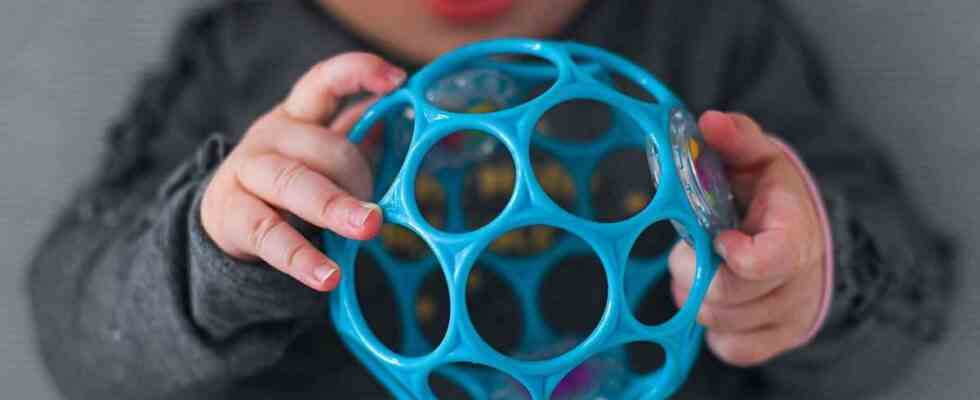Degrading scenes to make people laugh, influencers who trade in their family life but also photos that parents believe to be banal, the “image rights” of children too often go out of the frame on social networks, alert the public authorities and many associations.
Against the background of the presidential majority’s offensive to regulate the use of social networks by children and adolescents, like the adoption on Thursday by deputies of a “digital majority” at 15 years old, another proposal of law will be examined Monday by the National Assembly aiming to protect the “right to the image” of children.
“Digital educational violence”
Throw a slice of melted cheese in a baby’s face and film their reaction. The concept of the “Cheese Challenge” has thus gone viral on TikTok. Videos of babies crying or clumsily trying to remove cheese, while parents laugh, have been viewed millions of times. Others stage their family life: a mother with 1.2 million subscribers films her children taking on challenges for money or tricks her 10-year-old daughter into pretending to smoke to cheat on her little brother. Some practice “unboxing”, which consists of filming a child unpacking a product, and thus promoting it.
Isolated drifts of influencers in need of notoriety? Not only. The hoax, the “children’s police”, has flourished on social networks. The principle consists in broadcasting the recording of a fake policeman: “your child does not listen to you? We’re going to put him in jail. We arrive “. The parent films the frightened or crying child.
“There are parents who earn several thousand euros a month by throwing spoonfuls of mashed potatoes at their child’s head. These practices are akin to digital educational violence, while we have fought to eradicate spanking and other humiliating practices”, deplores Thomas Rohmer, president of the Observatory of Parenthood and Digital Education. (Open).
Photos that can end up on pedophile networks
Beyond slippages involving children on social networks and the Web, the excessive dissemination of photos or videos deemed banal or innocent but which remain for years on the Net, can constitute serious violations of image rights. children, warn the associations. The Defender of Rights, in its annual report in November, had thus called on parents to better respect the image rights and the privacy of children.
Even innocent photos can end up on pedophile networks. “50% of the photos that are exchanged on child pornography forums were initially published by parents on their social networks. Certain images, in particular photos of naked babies or young girls in gymnastic clothes, are of particular interest to pedophile circles, ”explains Renaissance deputy Bruno Studer, at the origin of the text which will be studied this Monday by the National Assembly.

